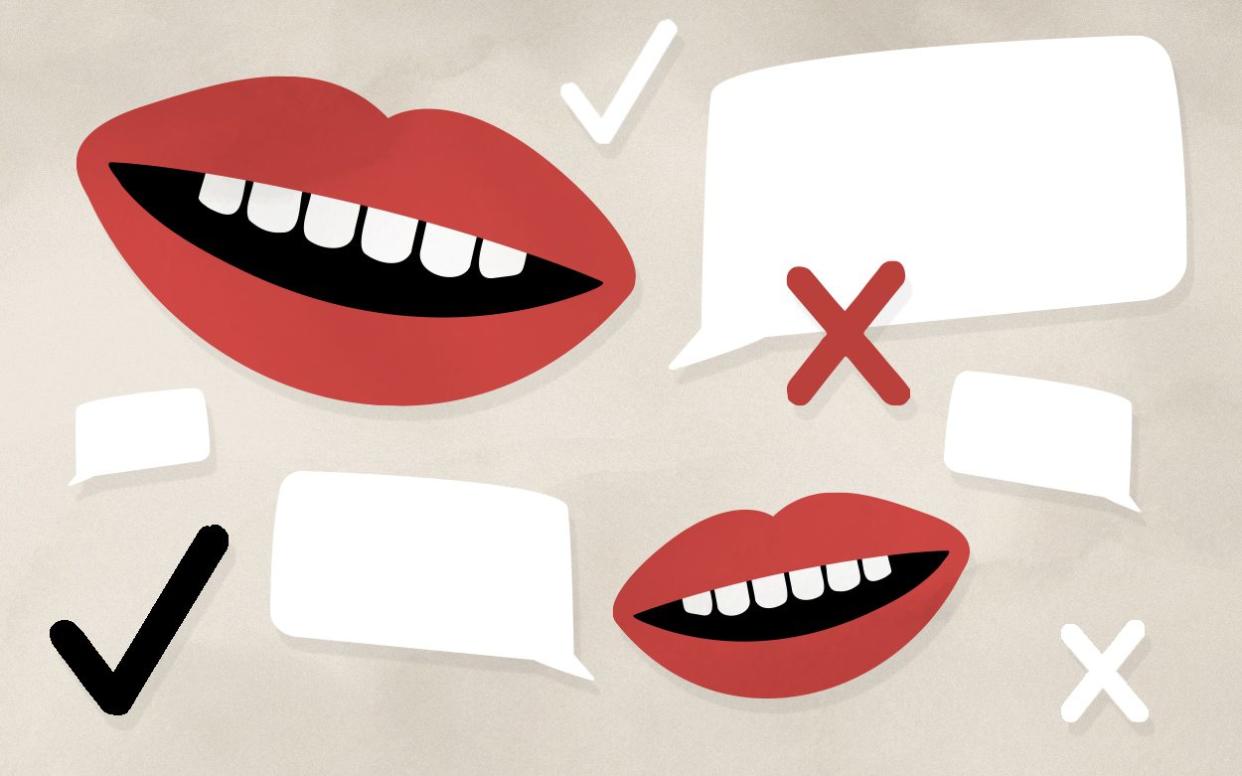‘Apart from the rash, I’m fine’: the dos and don’ts of small talk

Hiya! Good to see you reading this little feature down here, I hope you enjoy it. So how are you doing? Oh, me? I’m fine, just at home, mostly – lockdown, and all that. But today I noticed a news story about how BPP University Law School in Leeds is offering students what is thought to be the first module in chit-chat and networking.
“We often talk about good conversation as if it’s just exchanging information,” says Georgie Nightingall, the course leader. “But my experience with – my addiction to – good conversation suggests it’s more about expanding your perspectives and your relationships.”
While I would never claim to be “addicted to” good conversation, or bad conversation, it makes me wonder – and I think you’ll agree, but I’ll let you get a word in later – what the do’s and don’ts of great chit-chat are. The trials and tribulations of tattle, if you will.
Let’s talk it over.
DON’T ask dull questions
According to Nightingall, “asking small questions”, such as what you do and where you live, means “the person receiving that question assumes it’s not asked with genuine interest”. As a result, the answers will be boring, too.
So when you bump into a stranger at your first post-Covid wedding, try opening with something compelling like: “Hey, the ancient Greeks used spider webs to make bandages, did you know that? I’m Neil.” Or maybe: “Hello, nice to meet you. Tell me, if we were on Bake Off, what do you think Paul would say about this wedding cake? And do it in a Scouse accent. Go.” If they run away, it’s their loss.
DO give interesting answers
The follow-up to the above, naturally. It’s too easy to give a conversation-ending “Yeah, fine thanks”, or “I’m an accountant”, when really you want to surprise your interlocutor. Nightingall recommends answering something dreary like “How are you?” with a number, which apparently morphs into an absorbing dialogue about how we could grade our mood numerically. It’s one option. Others include: bare-faced lying (“I am a gunge-operator for CBBC”), giving too much information (“Apart from the rash, I’m fine”), creepiness (“All the better now you’ve drifted into my purview, mademoiselle…”) and mystique (“Guess”).
DON’T act like you’re online
A common issue for students these days, it’s said, is that they’re far more used to socialising online than in person. After three lockdowns, we’re probably all in that category now. So remember: in face-to-face conversations, you don’t need to switch your microphone on to speak, you are allowed to talk over one another a bit, you can’t simply reply with a thumbs up or a cry-laugh face, you do not have the authority to Jackie Weaver them out of the chat for shouting, and you do need to wear trousers.
DO ask reciprocal questions
A basic one, but you’d be amazed how far people can get in a chat without remembering to ask a single question in return. A conversation is like a game of Scrabble: you see what they lay down and consider what’s in your arsenal to build on it. “And you?” works well if you’ve just been asked what your last meal on death row would be, but they might have already given their answer, in which case you need to start somewhere else on the board. In that example, try: “So who would you be most likely to have murdered, if you were on death row?” It’s relevant. It’s pressing. It’s dark. The answer is probably you.
DON’T bring up anything potentially awkward
Sex, politics and religion are the classic no-gos, but to that we should add: the toppling of controversial statues, whether you’d rat on your neighbour in lockdown, gender rights, the sex appeal of Rishi Sunak, baked beans on Weetabix, screen time for your children, pineapple on pizza, the BBC, whether it’s pronounced “Gif” or “Jif”, if James Bond should be cancelled or not, and literally anything to do with Harry and Meghan.
DON’T forget to make eye contact
A classic, but for a reason. If you look over your conversation partner’s shoulder, it looks as if you’d rather speak to somebody else. If you look at your shoes, it looks as if you forgot to tie your laces. If you look at the other person’s shoes, it looks as if you hate their shoes. If you look at your drink, you look like a lush. If you look at the ceiling, you look like Chicken Licken. If you look at their chest, you’re in line for a slap. The eyes have it; anything else is wrong.
DO repeat a person’s name
A decade ago, Nick Clegg won a cupboard in Downing Street for five years simply by noting down the name of the questioner in a town hall-style debate and repeating it in his answers. The same applies in conversation. “Apart from the nipples, nothing,” you can say, “and how about you, Cynthia, have you had any plastic surgery?” Cynthia will be charmed: interesting answer, reciprocal question, and you remembered her name. 10/10 chit-chat.
DON’T overdo repeating a person’s name
Once is enough. Start every answer with: “Well, Cynthia, I’m really glad you asked because it’s a vital question…” and you’ll look like Rory Stewart.


